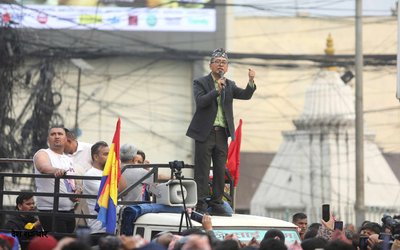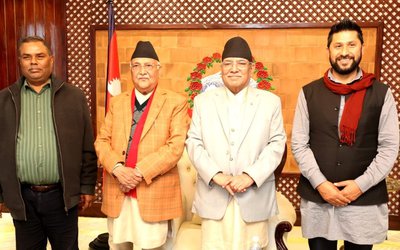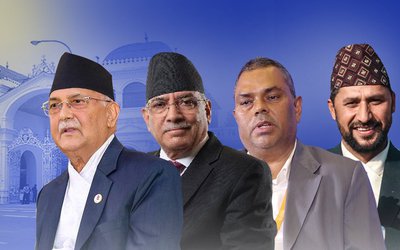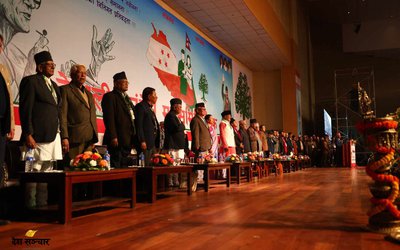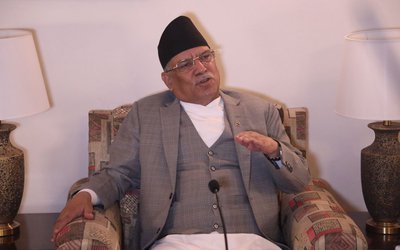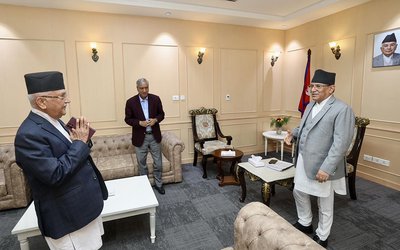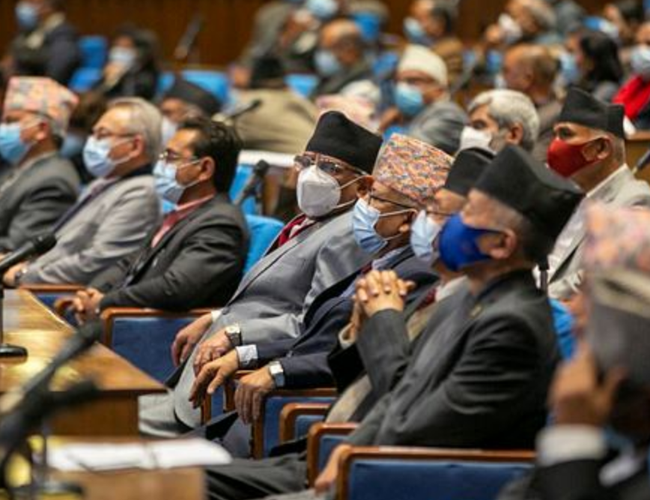
In trying to prove himself as a good political game changer, Maoist Center leader Pushpa Kamal Dahal has instead placed himself to be a source of political instability in the current political course.
His recent proposal to set up High Level Political Mechanism to advise and guide the government is likely to create more troubles and frictions for Prime Minister Sher Bahadur Deuba.
While the government is accountable to the parliament and will remain in the office till it holds the majority, people have already started to question the setting up of an inter-party political mechanism.
In recent meetings of coalition partners, Dahal proposed a high level mechanism to guide the government in the major policy issues including political appointments.
Dahal's proposal for the mechanism comes at a time when new government has started to revamp political appointees of the previous government.
Although many of ruling constituencies have also supported Dahal's idea, political analysts have termed it as just another attempt by Dahal to hold sway over PM Deuba and his executive power.
As Maoist Center leader is the key figure to dislodge Oli led communist government, it is very difficult for Prime Minister Deuba to reject the proposal of Prachanda right away.
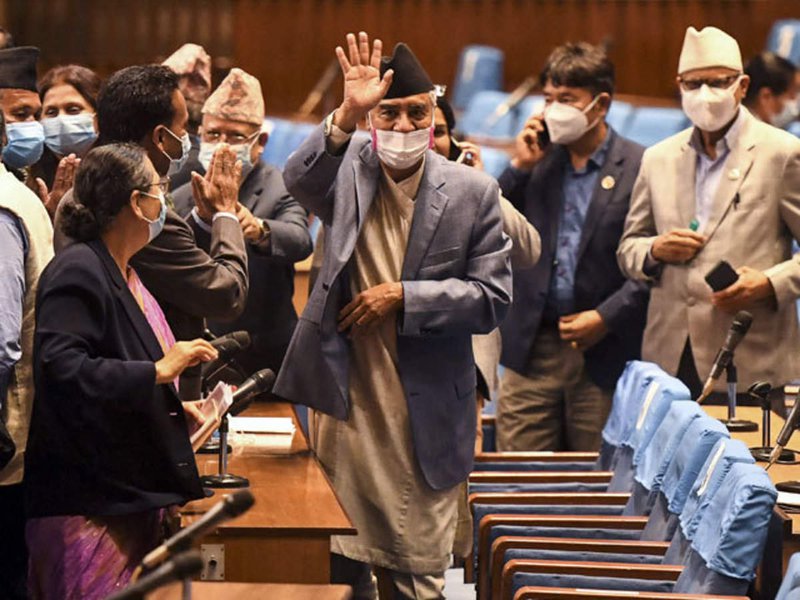
As a weak Prime Minister Deuba does not have a free hand in the party and coalition group. His decision to induct Umesh Shrestha as a minister of state at the Ministry of Health and Population has sparked a wider criticism within his party and outside compelling him to publicly acknowledge his mistake. This has shown the vulnerability of the government.
“I have realized that appointing the minister of state without consultation and consent of party and coalition partners is my mistake,” PM Deuba reportedly confessed in a meeting of coalition partners.
Dahal in his remarks defended his proposal of High-Level Mechanism to oversee the government’s activities and coordinate with it in naming political appointees.
“For the better coordination among the coalition partners on the issue of day to day matters and policy issue of the government, high-level coordination mechanism is relevant,” Dahal reportedly told in the meeting. “Such mechanism will prevent mistakes in the future.”
As the proposal of high-level mechanism is likely to create more frictions, the ongoing power struggle within major parties is likely to intensify instability.
Expanding the cabinet, Prime Minister Deuba has overcome major hurdles to give a sense of stability in the country. However, the road ahead for him will be more difficult given his bitter experiences with Prachanda in earlier power sharing agreement.
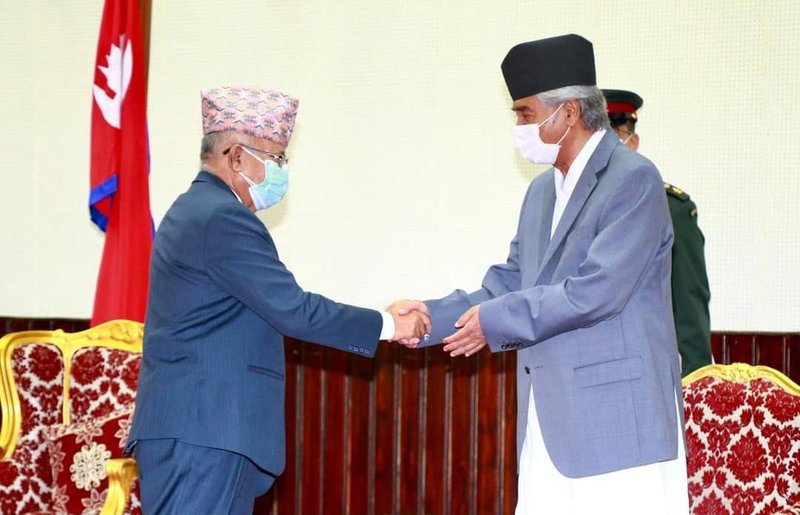
Challenges for Stability
The continual power struggle within CPN-UML, recent splitting of Samajbadi Janta Party Nepal and simmering disenchantment within Maoist Center and Nepali Congress have indicated that Nepal’s politics is heading towards a future on a course of instability and turmoil.
Constituted under a verdict of the Supreme Court annulling President Bidhya Devi Bhandari’s decisions to dissolve the House of Representatives, the government led by Deuba is likely to last for about a year and half.
Despite receiving almost two thirds of majority support in the House of Representatives, two weeks old Deuba government is yet to prove that this government will bring political stability.
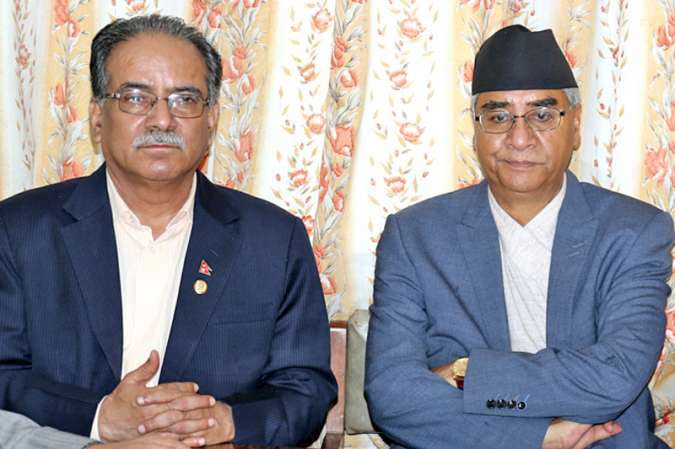
Inducting the members from the front, PM Deuba has completed the task of forming the government. However, the coming challenges are to make the coalition government efficient and stable.
As Nepal has very bitter experiences of coalition politics, the early indications have shown that this coalition will also end in bitter results. However, this is a last government under the constitutional provision. Coalition partners have no option other than to try to live together for coming months.
POLITICS
Party Split
Splitting into two Samajbadi Janta Party Nepal, has also shown CPN-UML rebels that there is a way to live with a separate identity
By A CORRESPONDENT
With the decision of Election Commission, Janta Samajbadi Party Nepal has legally split into two different political parties. The split of fourth largest party in the House of Representatives will make a significant political difference in the national politics.
For almost one year, Janta Samajbadi Party led by Uprendra Yadav and Baburam Bhattarai factions was in struggle with Mahantha Thakur-Rajendra Mahato faction. Following the dissolution of HoR, Thakur-Mahato faction even joined the government led by K.P. Sharma Oli.
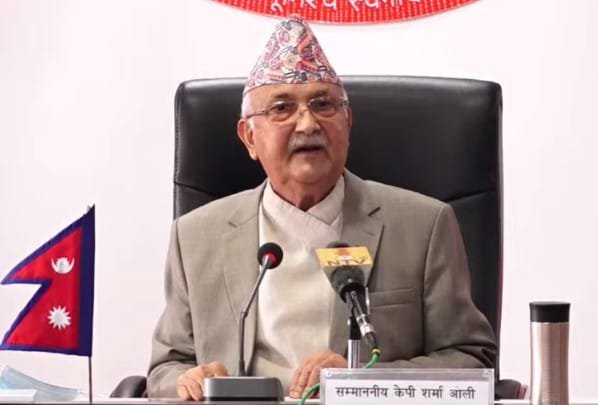
They fought tooth and nail to claim the authentic party, the two factions fought several rounds of legal fight including at the Supreme Court. However, the Election Commission recognized the Upendra Yadav-Baburam Bhattarai faction of the Janata Samajbadi Party-Nepal as the authentic party after 34 members of the party's 51-member executive committee supported the faction during the support verification process.
Only 16 members of the executive committee supported the other side. JSP-N lawmaker Resham Chaudhary, who has been a convict in Kailali carnage, was allowed to come to the EC from prison to express his support.
Chaudhary, who stayed neutral during the trust vote, told media persons that he had immense respect for Mahantha Thakur. The leader's status was that of Bhishmapitamaha of Mahabharata epic who supported Duryodhan. Chaudhary said he was an honest and committed cadre of the JSP-N and could not side with a faction.
EC Spokesperson Raj Kumar Shrestha said the EC bench that had conducted hearing before decided to give legitimacy to the Yadav-Bhattarai faction's claim of authenticity as majority members were with the faction.
The EC said the Thakur-Mahato faction could open a new party if they wanted to, but if lawmakers supporting their faction chose to stay with the faction and the Yadav-led JSP-N took action against them, then they could lose their seats.
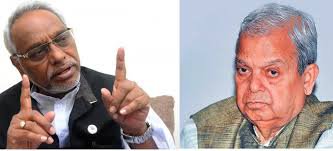
The EC source said that JSP-N lawmakers of the Thakur-Mahato faction could give up their seats and join a new party that the duo could open.
The Yadav-Bhattarai faction's counsel Senior Advocate Raman Kumar Shreshta said lawmakers of the Thakur-Mahato faction and other representatives in all tiers of the government were bound to follow the faction if they didn't want to lose their elected posts. He said the Thakur-Mahato faction did not have 40 per cent support in the executive committee and parliamentary party to split the party.
The Yadav-Bhattarai faction lawyer Senior Advocate Mithilesh Kumar Singh said only eight of the 34 lawmakers of the party were with the Thakur-Mahato faction, and some of them could switch to the Yadav-Bhattarai faction.
The feud between the two JSP-N factions had intensified with the Thakur-Mahato faction's decision to support KP Sharma Oli's bid for prime ministership under Article 76 (5), and the Yadav-Bhattarai faction's decision to support Nepali Congress President Sher Bahadur Deuba's bid for premiership under the same article.
The EC refused to recognize Thakur's claim of reshuffling the executive committee on grounds that the details of the reshuffle were not updated at the EC.
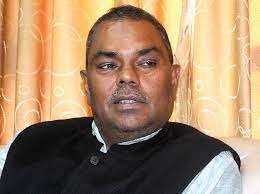
Mahato said they had rescued Yadav last year by agreeing to unify his Rastriya Janata Party-Nepal with the Yadav-led Samajbadi Party-Nepal when Yadav's party was on the verge of split.
Mahato said his faction's bid to form an alternative force to champion the cause of marginalized communities would continue. "This is a technical split of the JSP-N and I believe that the people of the country are the main deciders of a political party," said Mahato.
Mahato said his faction would decide on the next course after the end of July when the Supreme Court would decide whether to issue an interim order in the case.
He said all three parties - CPN-UML, Nepali Congress, and the CPN-Maoist Centre - were the same for Madhesis because they had promulgated the new constitution suppressing the Madhes agitation against the constitution.
JSP-N lawmaker Laxman Lal Karna, who is close to Mahato, said his faction wanted unity but Upendra Yadav was against it.
Ram Sahay Yadav, who is close to Upendra Yadav, said the EC's decision had cleared the decks for the party to carry out its policies across the country. He said the EC's decision would help the SC take a decision on the dispute.
The Thakur-Mahato faction has challenged the EC's decision not to give legitimacy to Thakur's decision reshuffling the party's executive committee.
The EC said in its verdict that if the Thakur-Mahato faction sought to register a new party under Section 44 (6) of the Political Party Act, it would register it deeming it to be a separate political party.
As many as 34 executive committee members of Janata Samajbadi Party-Nepal have submitted their signatures in favor of the faction led by Upendra Yadav and Baburam Bhattarai, at the Election Commission.
The EC on July 23 had asked members of the party's executive committee to appear before it with original copies of their citizenship certificates or voter identity cards, in a bid to ascertain which faction of the party holds majority in the party.
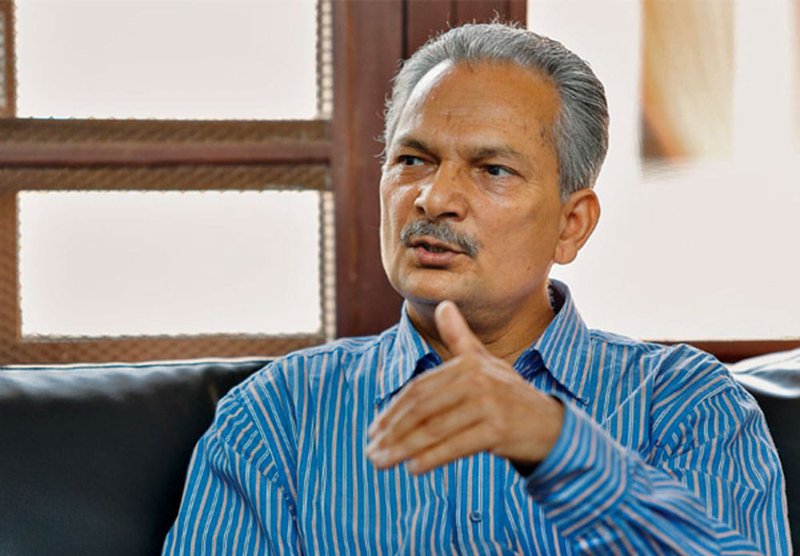
The Mahanta Thakur- Rajendra Mahato faction had moved the Supreme Court the same day demanding the EC's decision on the headcount be stayed. However, the apex court refused to issue an interim order against the EC.
The feud between two JSP-N factions intensified with Thakur-Mahato faction's decision to support Oli's bid for prime ministership under Article 76 (5), and the Yadav-Bhattarai faction's decision to support Nepali Congress President Sher Bahadur Deuba's bid for premiership under the same article.
CPN-UML at Verge of Split
The split of JSPN has shown a way for the political parties to divorce if they wish. At a time when two factions of CPN-UML have been leaving separately holding parallel meetings, the EC’s decision has also given them a way out.
Despite several efforts, the two warring factions of CPN-UML are yet to patch up their difference. Since a faction led by CPN-UML leader Madhav Kumar Nepal is one of the coalition partners, the unity with outgoing Prime Minister K.P. Sharma looks unlikely now. However one cannot rule out the possibility of unification between the two given past history of communist parties.
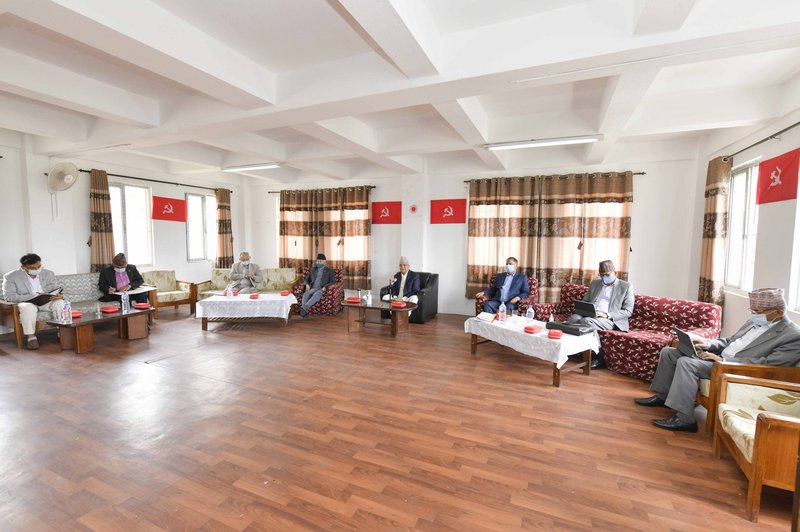
With disputes growing, twenty-two lawmakers of the Madhav Kumar Nepal-Jhalanath Khanal faction of the CPN-UML furnished their explanation to party Chair KP Sharma Oli, claiming that they had not violated party discipline.
Lawmaker Birodh Khatiwada, who is close to Nepal, said the 22 lawmakers wrote that they had opposed Oli's undemocratic moves and the Supreme Court had vindicated their position in both the cases challenging the dissolution of the House of Representatives.
Oli had asked the 22 lawmakers to explain why they should not be expelled from the party for anti-party activities.
As rebels have been coming more vocal, UML's establishment faction decided to continue attempts to forge unity between the two factions.
UML Spokesperson Pradeep Kumar Gyawali said that after the central committee meeting, Oli said he would pardon leaders for their past mistakes if they wanted to come back and strengthen the party.
Gyawali said the party would make efforts till the last minute to keep party unity intact.
Asked to comment on Madhav Kumar Nepal's remarks that he would not stay in the party if subjected to humiliation, Gyawali said Nepal should realize that he brought the party's government down and helped the Nepali Congress attain power.
Gyawali said the party's general convention could take a call on the age bar for party leaders and limiting the number of times a leader could contest the top party post.
Nepal said he would not remain in the party if he was humiliated. He said the name and election symbol of a party did not mean much if the party was not committed to people's cause.
Nepal said screaming from one's balcony and taking out rallies wearing monkey masks would not help the cause of unity. Oli had recently said from the balcony of his house that Nepal had no place in the party. Supporters of the Oli faction also took out a rally in Kathmandu wearing monkey masks to mock the Nepal faction.

Keshab Poudel
Poudel is the editor of New Spotlight Magazine.
- ECONOMY: Growth At 3.3
- Apr 16, 2024
- DPM’s SHRESTHA’S CHINA VISIT High Profile, Low Key
- Apr 14, 2024
- Maha Kumbha In Barahkshetra: A Sacred Festival In Sacred Koshi (Kaushiki) River
- Apr 09, 2024
- LOSS AND DAMAGE: Upper Tamakoshi A Case
- Apr 02, 2024
- Helvetas-Nepal’s InElam Promoting Herbal Oil In Sarlahi
- Mar 31, 2024

